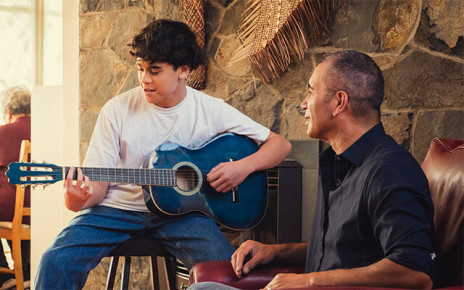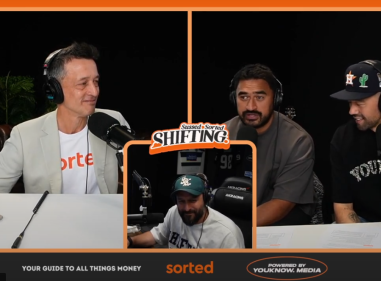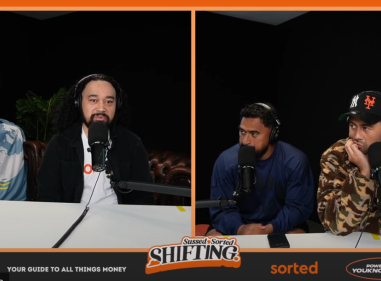
Planning & budgeting
Saving & investing
KiwiSaver
Tackling debt
Protecting wealth
Retirement
Home buying
Life events
Setting goals
Money tracking
Plan your spending with a budget
Getting advice
Studying
Get better with money
What pūtea beliefs do you have?
How to build up your emergency savings to cover unexpected costs
How to save your money
How to start investing
Find a financial adviser to help you invest
Your investment profile
Compound interest
Net worth
Types of investments
Term deposits
Bonds
Investment funds
Shares
Property investment
How KiwiSaver works and why it's worth joining
How to pick the right KiwiSaver fund
Make the most of KiwiSaver and grow your balance
How KiwiSaver can help you get into your first home
Applying for a KiwiSaver hardship withdrawal
How to use buy now pay later
What you really need to know before you use credit
How to get out of debt quickly
Credit reports
Know your rights
Pros and cons of debt consolidation
Credit cards
Car loans
Personal loans
Hire purchase
Student loans
Getting a fine
What happens if I start to struggle with moni?
How to protect yourself from fraud and being scammed
About insurance
Insurance types
Insuring ourselves
Wills
Enduring powers of attorney
Family trusts
Insuring our homes
Losing a partner
Redundancy
Serious diagnosis
How to cope with the aftermath of fraud
Separation
About NZ Super – how much is it?
When you’re thinking of living in a retirement village
How to plan, save and invest for retirement
Manage your money in retirement
Find housing options in retirement
Four approaches to spending in retirement
Planning & budgeting
Saving & investing
How to build up your emergency savings to cover unexpected costs
How to save your money
How to start investing
Find a financial adviser to help you invest
Your investment profile
Compound interest
Net worth
Types of investments
Term deposits
Bonds
Investment funds
Shares
Property investment
View all
KiwiSaver
Tackling debt
How to use buy now pay later
What you really need to know before you use credit
How to get out of debt quickly
Credit reports
Know your rights
Pros and cons of debt consolidation
Credit cards
Car loans
Personal loans
Hire purchase
Student loans
Getting a fine
What happens if I start to struggle with moni?
View all
Protecting wealth
Retirement
Home buying
Reading time: 3 minutes

We all have some kind of relationship with pūtea .
What’s your relationship with money like? It’s great when this relationship is pai, but when our relationship is a bit rocky, it can leave us feeling pretty hōhā… or worse still mānawanawa or whakamā.
It’s important to take a little bit of time to think about our relationship with money. How did we come to think and feel this way?
Many of these beliefs won’t be because someone has sat us down and had a kōrero about it, but just because of what we observed growing up.
As we start to learn more about pūtea and how to make it work for us, it can be important to whaiwhakaaro about some of things we learnt from our whānau and their relationship with moni. It probably influences the way we think, feel and act with pūtea now.
Think about when you were growing up. Was there much kōrero in your whānau about pūtea? Was your whānau one that liked to save pūtea or spend it?
When a bill came into the whare, what was the mood like? Was there enough moni put aside to pay it, or did it always feel like there wasn’t quite enough to go around?
Sometimes if we don’t have enough moni for everyday living, our relationship with pūtea can be pretty tricky. It can make us feel weighed down and stressed.
If that’s how you feel, it’s probably a good idea to find someone in your whānau who you think is pretty onto with moni and have a kōrero with them, ideally kanohi ki te kanohi.
Ask them some pātai about their relationship with moni and how they can help you feel better about your relationship with it too. If you don’t have anybody in your immediate whānau to talk to, then think about tāngata you know who you trust and have a kōrero with them.


- Mareikura, 22
Blog
He mahi ngātahi te rautaki kohi pūtea ohotata a ētahi whānau. Pērā i ngā tīpuna i whakarite mahere mō ngā…

Guide
Everyone needs an emergency fund. When things go pear-shaped, we need to cover ourselves and those we’re closest to. That’s…

Guide
Budgets help us plan where our money should be going, but it’s also important to track where our money actually…
Guide
Studying can be an investment in our future. Interest-free student loans seem like easy money, but borrowing too much could…

Guide
A budget (or money plan) is really just a simple plan for your spending.

Guide
Being onto it with money helps you establish control over where you want to head in life, providing you with…

Guide
Managing money can be challenging – not all of us have the skills to sort out the more complicated stuff.…

Guide
Here’s the first step to sorting our finances: working out where we want to be moneywise and what our priorities…

Video
As we enter the new year, it's the perfect time to set your financial goals and take action to improve…

Video
Join us as we explore how couples can work together to grow their financial future. This episode offers valuable insights…

Use verification code from your authenticator app. How to use authenticator apps.
Code is invalid. Please try again
Don't have an account? Sign up
Or log in with our social media platforms


A free account gives you your very own space where you can save your tools and track your progress as you get ahead.
Or sign up using Google:


